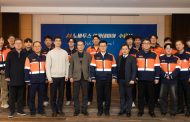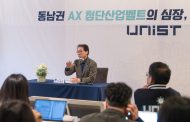The official signboard-hanging ceremony of the Center for Future Semiconductor Technology (FUST) took place at UNIST on Monday, August 5, 2019.
With the support of this center, UNIST will accelerate the research and development (R&D) of next-generation semiconductor technologies for various applications, then turn them into commercially viable outcomes. Thus, the center plans to actively promote multidisciplinary research and industry-university cooperation, covering the entire industry, from materials, devices, circuits, systems, and to applications.
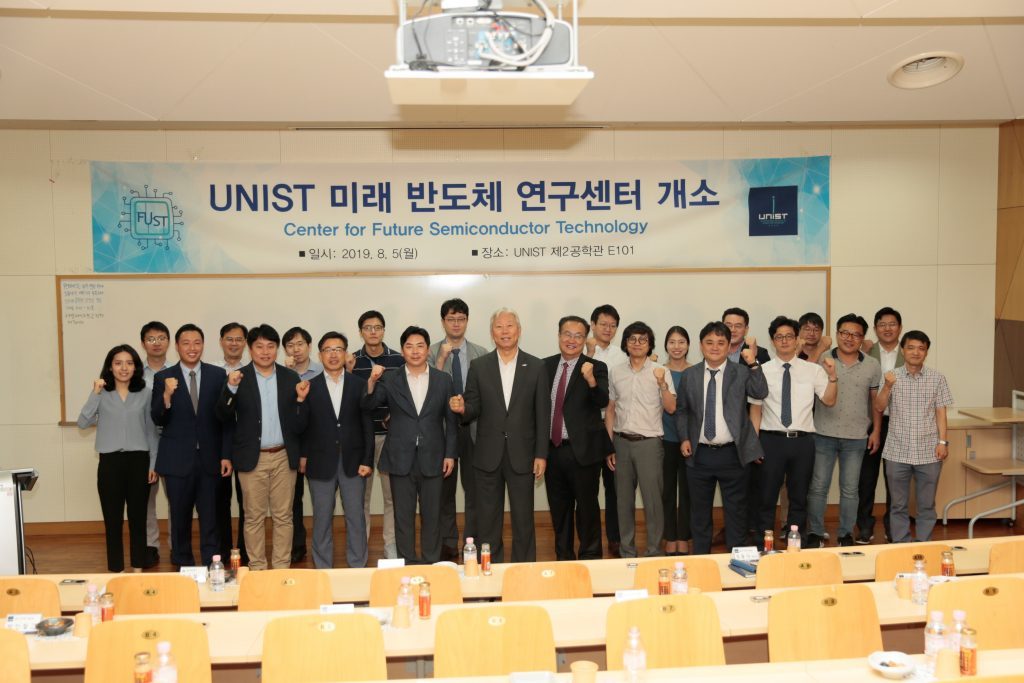
The ceremony has been attended by researchers working in various fields, such as physics, materials engineering, semiconductor engineering, electronic engineering, and computer engineering.
Researchers working in various fields, such as physics, materials engineering, semiconductor engineering, electronic engineering, and computer engineering, will also join the center. Under the direction of Professor Hongsik Jeong (School of Materials Science and Engineering), Professors from both the School of Materials Science and Engineering (Ki-Suk Lee, Jae Sung Son, Jiyun Kim, and Joonki Suh) and the School of Electrical and Computer Engineering (Sam H. Noh, Kyung Rok Kim, and Kyuho Lee) will carry out multi-discipline convergence research projects on semiconductors.
“The aim of our center is to carry out genuine research that will provide a supportive framework for technological advances,” says Director Hongsik Jeong.
The center strives to pursue research in three directions, namely New Research Growth Model of Next-generation Semiconductors, Applied Semiconductor Research, and Semiconductor Materials & Components. The aim of New Research Growth Model is to help develop next-generation semiconductor devices with enhanced functionality, such as Artificial Intelligence (AI) and Internet of Things (IoT) sensors, and to make the next leap forward in the competitive semiconductor industry through device miniaturization.
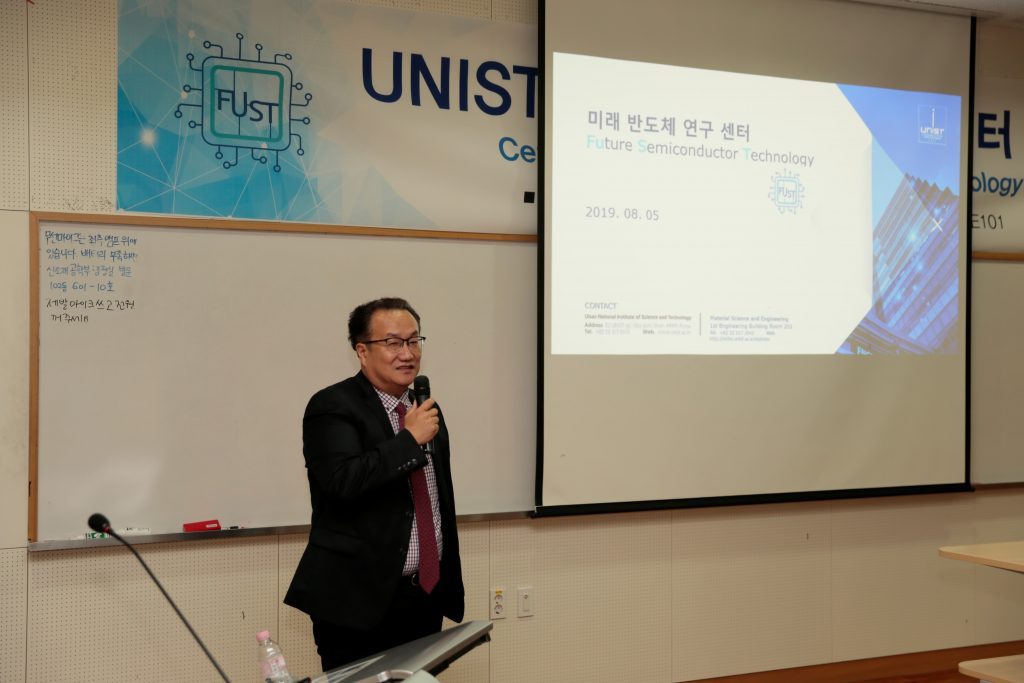
FUST Director Hongsik Jeong (School of Materials Science and Engineering, UNIST) is providing a brief introduction of the center.
The Applied Semiconductor Research covers the development new computational architectures and circuit designs. This will include the development of technologies for various semiconductor device applications, ranging from AI architecture, new memory architecture to neural network chip development. Lastly, the center plans to expand into semiconductor materials and components, thus contributing significantly to the semiconductor industry’s overall growth.
“The nano fabrication cleanroom at UCRF boasts the world-class research equipment to support the entire semiconductor process,” says President Mooyoung Jung of UNIST. “With the help of this center, we expect UNIST to play a big role in the growth of the semiconductor industry.”
The ceremony has been attended by Director SoonChul Park from Innovative Industry Bureau of Ulsan Metropolitan City, UNIST President Mooyoung Jung, Director In Cheol Bang of Budget and Planning (UNIST), Dean Myoung Hoon Song in the School of Materials Science and Engineering (UNIST), and Director Hongsik Jeong of FUST.


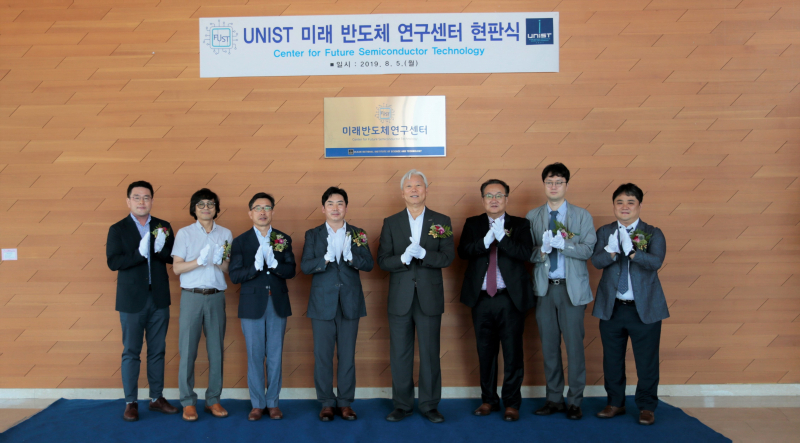



![[2026 UNIST Commencement] UNIST Confers Degrees to 883 Graduates](https://news.unist.ac.kr/wp-content/uploads/2026/02/사진-2026학년도-UNIST-졸업생들이-학사모를-위로-던지며-졸업을-축하하고-있다-1-800x413-190x122.jpg)
